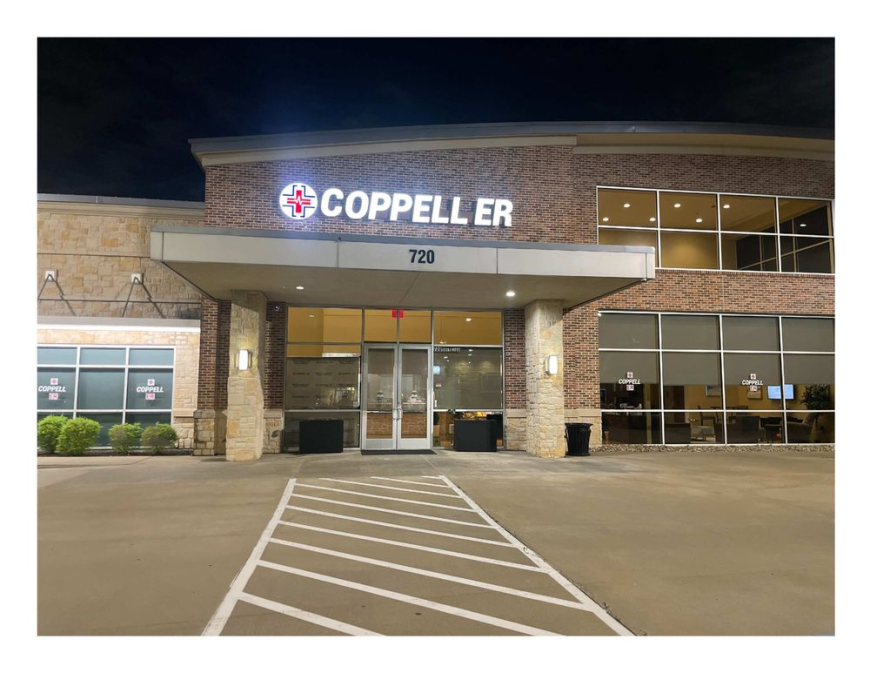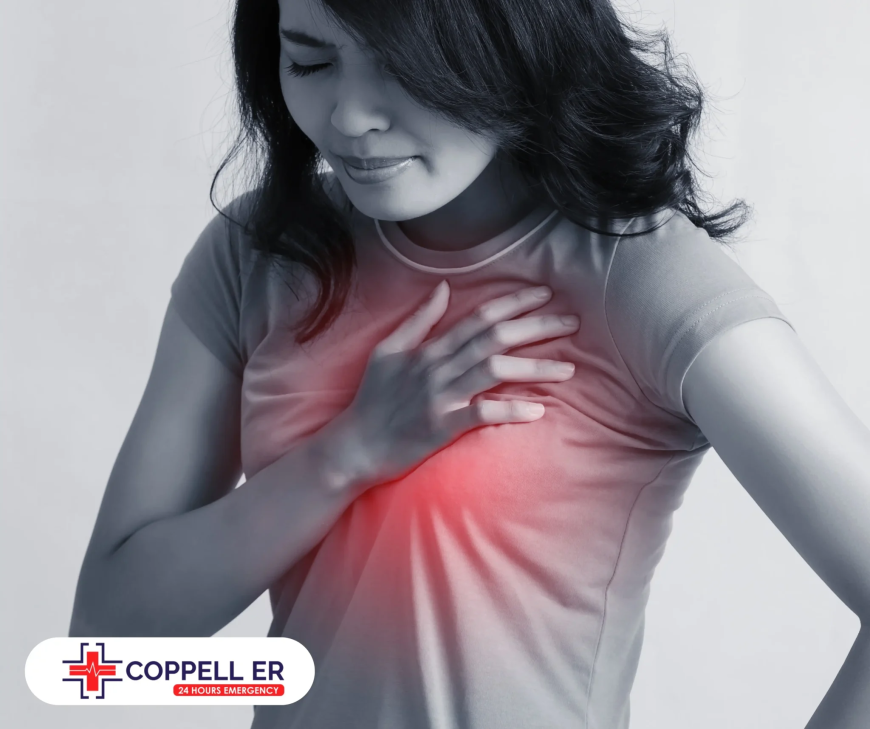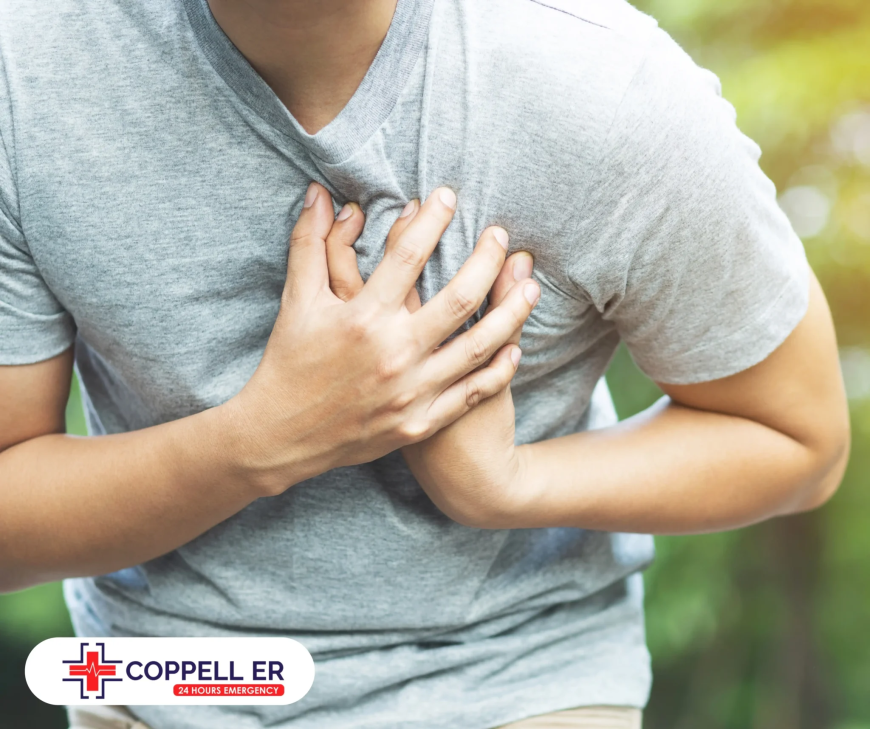7 Shocking Reasons Why Your Chest Hurts After You Eat: ER of COPPELL
Wondering why your chest hurts after eating? Discover 7 surprising causes, symptoms to watch for, and how ER OF COPPELL can help you feel better, fast.

Introduction
Eating is supposed to be a satisfying and comforting experience. But what happens when the pleasure of food is followed by discomfort or even pain? If you've ever asked yourself, why does my chest hurt after I eat, you're not alone. This issue affects thousands of people and can range from mildly annoying to seriously concerning. In this article, we’ll break down the most common causes, signs you shouldn't ignore, and what steps you can take to find relief—or seek help fast.
Acid Reflux or GERD (Gastroesophageal Reflux Disease)
Acid reflux occurs when stomach acid flows back into the esophagus, causing a burning sensation often referred to as heartburn. When it happens frequently, it might be a sign of GERD.
Symptoms:
-
Burning pain in the chest (heartburn)
-
Sour or bitter taste in the mouth
-
Chest pain after eating, especially after spicy or fatty foods
Why It Happens:
The lower esophageal sphincter (LES) may relax inappropriately, letting acid creep upward.
What to Do:
-
Eat smaller meals
-
Avoid lying down right after eating
-
Limit trigger foods like coffee, chocolate, and citrus
Alt text: Illustration of acid reflux affecting the esophagus.

2. Esophageal Spasm
The esophagus uses coordinated muscle contractions to move food to your stomach. Sometimes these muscles contract abnormally, leading to spasms.
Symptoms:
-
Sudden, intense chest pain
-
Trouble swallowing
-
Pain that may mimic a heart attack
Why It Happens:
The exact cause isn’t always known, but cold foods, stress, and certain health conditions may trigger spasms.
What to Do:
-
Identify and avoid triggers
-
Stay hydrated with warm liquids
-
Seek medical advice for persistent episodes
3. Heart-Related Issues
While many causes are digestive, chest pain after eating could signal a heart problem.
Symptoms:
-
Chest pressure or tightness
-
Pain radiating to arm, jaw, or back
-
Shortness of breath
Why It Happens:
Eating requires extra blood flow for digestion. In people with narrowed arteries or heart disease, this added demand might trigger angina.
What to Do:
-
Seek immediate help if you suspect a heart problem
-
Don’t ignore chest pain that occurs repeatedly
-
Visit ER OF COPPELL for urgent evaluation
4. Hiatal Hernia
A hiatal hernia occurs when part of the stomach pushes through the diaphragm into the chest cavity.
Symptoms:
-
Heartburn
-
Chest pain
-
Feeling full quickly
Why It Happens:
Weakened muscle tissues around the diaphragm allow the stomach to move up.
What to Do:
-
Avoid large meals
-
Elevate the head during sleep
-
Consider surgical treatment if symptoms are severe
5. Food Intolerance or Allergies
Sometimes your body simply doesn't react well to certain foods.
Symptoms:
-
Chest tightness
-
Swelling of the lips or throat
-
Hives or skin rash
Why It Happens:
Your immune system overreacts to proteins in specific foods, such as dairy, nuts, or gluten.
What to Do:
-
Keep a food diary
-
Eliminate one potential trigger at a time
-
Visit an allergist for tests
6. Gas and Bloating

Gas buildup can cause sharp, stabbing pain in the chest, mimicking serious conditions.
Symptoms:
-
Burping
-
Abdominal discomfort
-
Feeling overly full
Why It Happens:
Swallowed air or gas-producing foods like beans, soda, and cruciferous vegetables may be the cause.
What to Do:
-
Eat slowly to avoid swallowing air
-
Take anti-gas medications
-
Walk after meals to help digestion
7. Esophagitis or Esophageal Ulcers
Esophagitis is inflammation of the esophagus, sometimes caused by prolonged acid reflux.
Symptoms:
-
Painful swallowing
-
Chest pain
-
Nausea or vomiting
Why It Happens:
The tissue lining your esophagus becomes irritated or damaged.
What to Do:
-
Avoid acidic and spicy foods
-
Take medications prescribed by your doctor
-
Treat underlying causes like GERD or infections
ER OF COPPELL: Your Partner in Fast, Reliable Care
If you experience unexplained or severe chest pain after meals, the experts at ER OF COPPELL are here 24/7. Our team is trained to distinguish between digestive and heart-related pain using advanced diagnostic tools and years of experience.
Frequently Asked Questions (FAQs)
Q1: Is chest pain after eating always serious?
A: Not always. It could be something as simple as indigestion or gas, but you should never ignore persistent or severe pain.
Q2: Can I treat chest pain after meals at home?
A: Mild cases might respond to diet changes, antacids, or avoiding known triggers. However, serious symptoms need medical attention.
Q3: Could this pain be related to a heart problem?
A: Yes, especially if it comes with shortness of breath or radiating pain. Seek immediate care if you suspect heart issues.
Q4: What foods should I avoid?
A: Spicy foods, caffeine, alcohol, and fatty meals are common triggers. Identify what specifically causes your discomfort.
Q5: How can ER OF COPPELL help me?
A: ER OF COPPELL offers rapid diagnostics and treatment for both digestive and cardiac causes of chest pain. Our skilled team is available 24/7.
For more blogs visit https://crivva.com/?p=169008&preview=true&_preview_nonce=2d2a561871
For more blogs visit https://fab-chat.com/top-7-insights-from-real-coppell-er-reviews-you-need-to-know/

 mehreenmir519
mehreenmir519